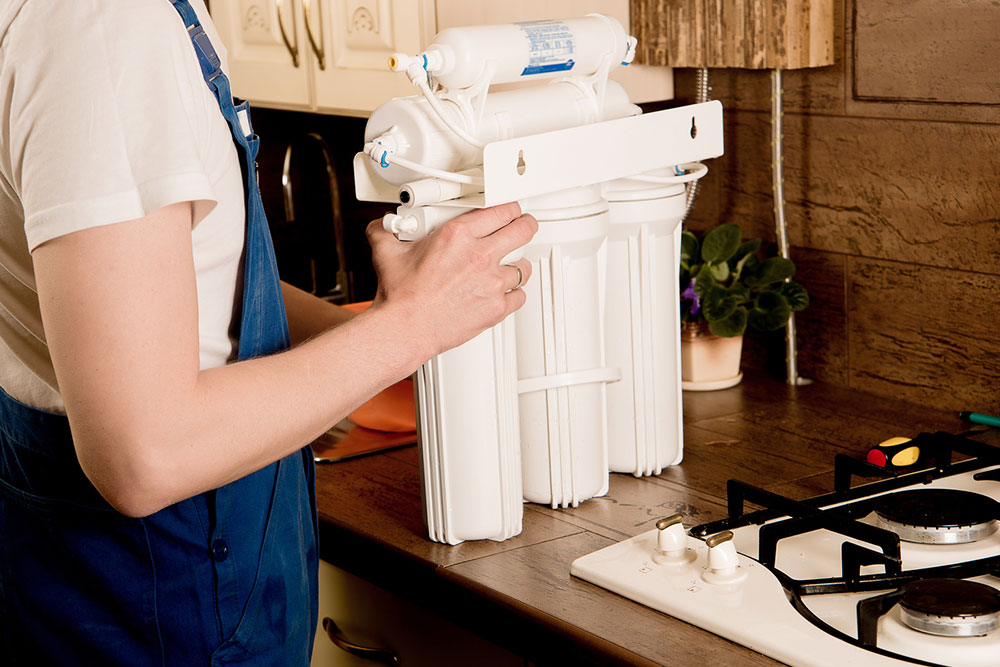Key reasons to purify tap water

There is no life without water, but when the water one uses is contaminated, they could be at risk of health problems. That’s why access to clean drinking water is a basic need. But even seemingly clean tap water may need to be purified to make it drinkable. So, here are the side effects of drinking tap water and the role of a water purifier to highlight the importance of water purification:
Side effects of drinking tap water
1. Bacterial infections
Bacteria like salmonella and E. coli thrive in contaminated tap water, and they can lead to severe bacterial infections. These infections hamper digestion, so problems like diarrhea, cholera, typhoid, and dysentery may develop upon drinking water directly from the tap.
2. Discoloration of teeth
Fluoride is a mineral that is naturally found in the body, including the bones and teeth. It is sometimes added to drinking water. However, excessive fluoride exposure can cause fluorosis or tooth discoloration.
3. Eye and skin problems
Pesticides and herbicides are used to get rid of insects and worms. However, exposure to such chemicals can be very harmful to humans as well. Sometimes, tap water gets contaminated by pesticides and herbicides, so upon drinking, it can cause skin and eye irritation, along with other side effects.
4. Increased risk of cancer
Radon, a natural gas, is also found in groundwater. Essentially, when groundwater passes through rocks with uranium, it may get contaminated by radon, which is a product of the breakdown of uranium. Exposure to the gas has been linked to cancer of the internal organs, including stomach cancer. Further, drinking water may get contaminated by dioxins—chemicals produced during forest fires and combustion—which can also cause cancer.
5. Partial paralysis
Arsenic, a metalloid substance usually present in groundwater, can affect the body in multiple ways. When one drinks water from a tap supplying groundwater, arsenic can enter the body. In some cases, arsenic may even cause partial paralysis.
6. Hormonal imbalances
Tap water may have traces of certain hormones like estrogen, as well as chemicals that disrupt hormones in the body. So, directly having tap water may lead to hormonal imbalances.
Tap water is usually not very regulated for the chemicals, heavy metals, and pollutants it has, specifically in certain areas. For this reason, it may have excessive amounts of harmful agents, which can cause the above-mentioned health issues. For this reason, unsafe tap water has also been linked to reproductive issues.
Role of a water purifier
1. Removal of harmful bacteria
Good-quality water purifiers can remove up to 99% of harmful bacteria, like E. coli and salmonella, from water. This way, they lower the risk of water-borne diseases like cholera, jaundice, and dysentery.
2. Better skin health
Water in its pure form can work wonders for the skin by moisturizing it and making it soft and supple. Water purifiers remove all impurities in water, so using this water on the face and the rest of the body can enhance skin health.
3. Removal of heavy metals and toxins
Heavy metals like mercury and lead in water can cause physical and mental health problems. Further, water contaminated with dioxins can cause reproductive health issues and hormonal imbalances. Those having water from the tap are directly exposed to these agents, so they are at a higher risk of developing these problems. However, water purifiers filter tap water, getting rid of these toxins and heavy metals and reducing the risk of health issues arising out of prolonged exposure to these harmful elements.
4. Retention of essential minerals
Water in its natural form has many minerals, including calcium and magnesium, that are essential for the body in many ways. Water purifiers don’t just remove toxic metals and bacteria, they can also make sure that the healthy minerals are retained. This way, one can reap the benefits of the good elements of water and do away with the harmful ones.
5. Reduced risk of Alzheimer’s
Tap water is often loaded with aluminum, which can reduce cognitive functioning and make one vulnerable to Alzheimer’s disease. It is also the most difficult element to be excreted, so it stays for a long time in the body and adversely affects mental health. Good-quality water purifiers get rid of aluminum, so it reduces the risk of developing Alzheimer’s disease and other cognitive disorders.
How to choose a water purifier?
One should start by checking the total dissolved solids (or TDS) level, i.e., the concentration of dissolved substances in water, which indicates whether it can be consumed directly. Checking the TDS level of tap water in the area is important when selecting a water purifier because it helps select the right type of water purifier accordingly. There are three major water purifying systems: reverse osmosis, ultrafiltration, and ultraviolet. Areas with high TDS levels may need reverse osmosis, but if the TDS is low, UV or UF may suffice. Also, seeking recommendations from neighbors who have a purifier is a great way to find a suitable option. One can also shortlist well-known water purifier brands and then check their online reviews. Customer reviews and ratings can offer insights into the quality of the product and the customer service the manufacturer provides.









